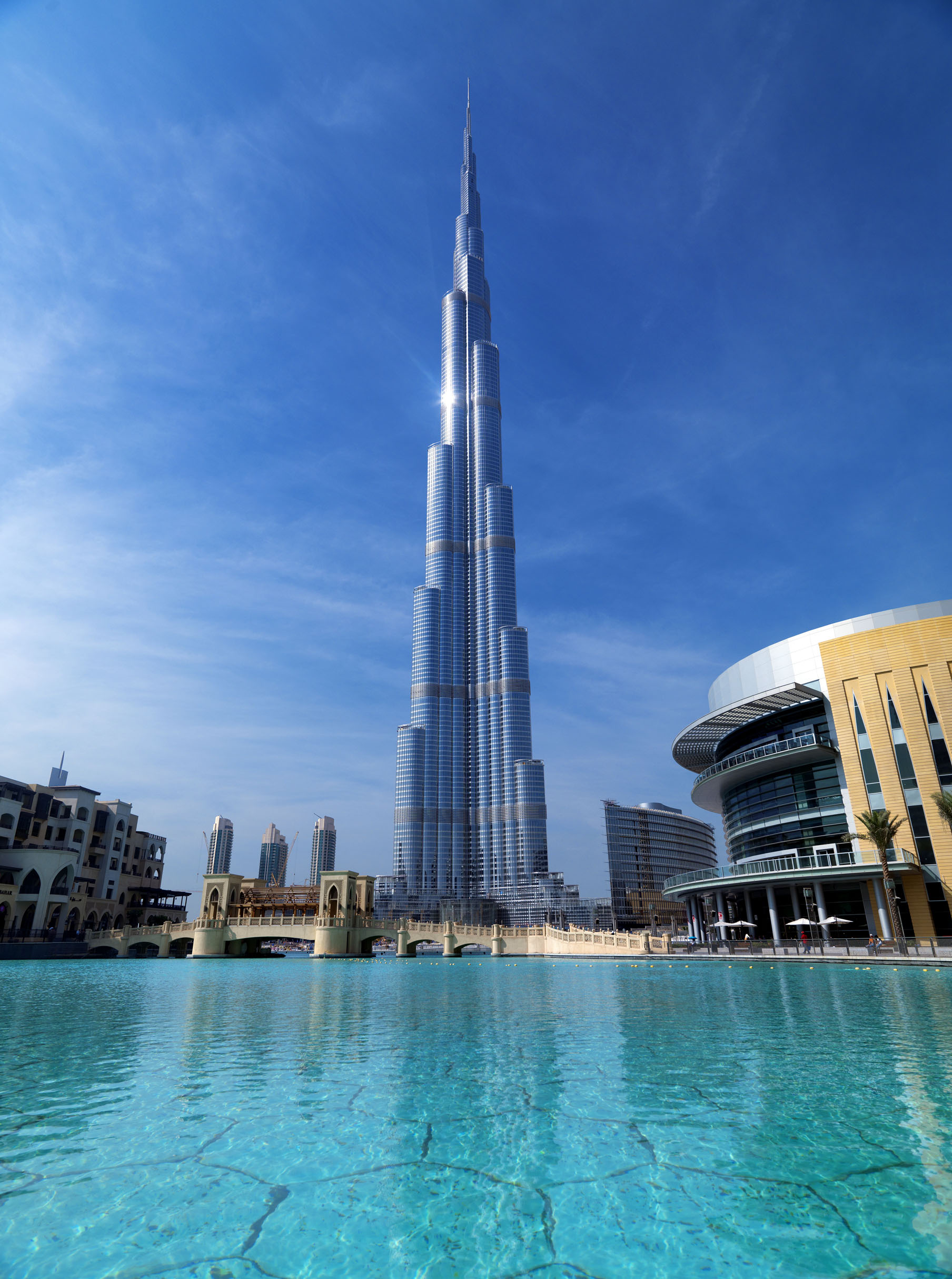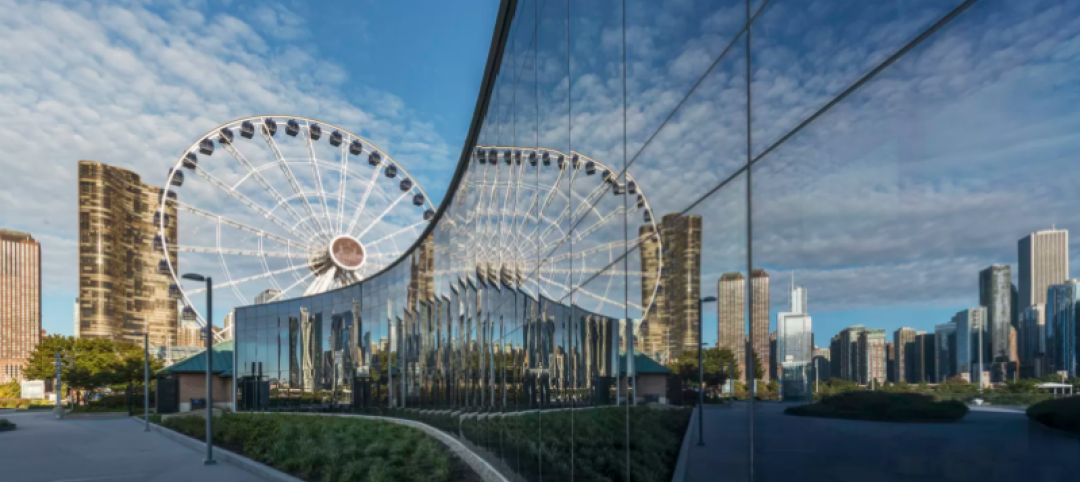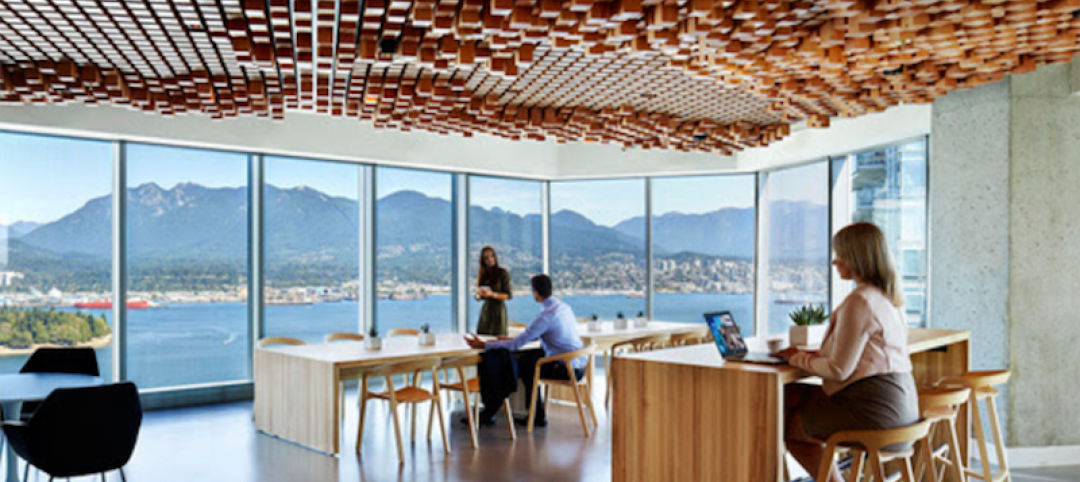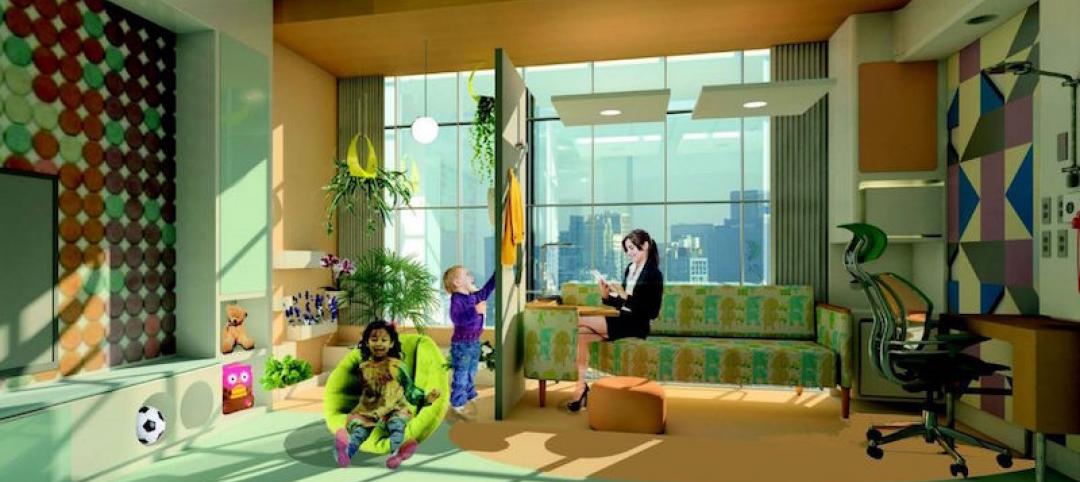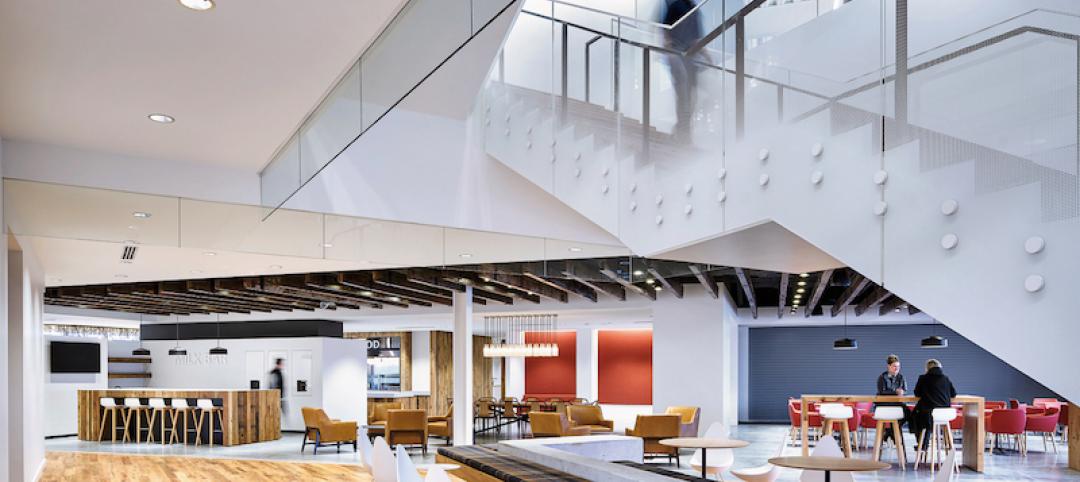The Burj Khalifa is part of an extraordinary 500 acre development called Downtown Dubai. The tower’s design is derived from patterning systems embodied in Islamic architecture, and also takes inspiration from the harmonious structure of the Hymenocallis plant, which is native to the region.
This iconic project breaks many records while overcoming the greatest of challenges and technical difficulties, not least of which are the wind forces dominating the structural design of the tower, the logistics of moving men and materials at extreme heights, and construction of the building envelope.
Addressing the environmental and technical challenges
As with any construction in the Middle East, Dow Corning’s technical experts were confronted with testing and specifying products that are able to withstand the rigors of high temperature, ultra-violet light, seismic activity and inclement weather conditions including sandstorms and high winds. In addition, large areas of the curtain wall, which in total is equivalent in size to 17 soccer fields, are positioned at extreme height, which in turn, brings a new set of technical challenges.
Key Participants
Adrian Smith, Skidmore, Owings & Merrill — Architect
Far East Aluminum, Hong Kong Arabian Aluminum, UAE — Structural Glazing Fabricators
White Aluminum, UAE — Insulating Glass Fabricator
Samsung Engineering & Construction — Main Contractor
Emaar Properties — Developer
Solving the pressure build-up problem
A total of 103,000 square meters of glass was used in the cladding panels, which are incorporated into a total facade area of 132,190 square meters. These advanced cladding panels maximize resistance against heat transmission from the sun and save energy through the use of sophisticated engineering techniques, which include high performance reflective glazing.
The unitized panels were interlocking on site and up to two stories tall. Being positioned at such high elevations, the risk of pressure buildup within the insulating glass units was alleviated through the design specification and Dow Corning 3362 Silicone Insulating Glass Sealant, was used as the secondary perimeter seal. Silicone application was carried out by White Aluminum Enterprise, who is a member of Dow Corning® Quality Bond—an initiative which provides technical training and support, designed to achieve excellence in quality control, quality assurance and standards of workmanship.
Products
Dow Corning 993 Silicone Structural Glazing Sealant
Dow Corning 3362 Silicone Insulating Glass Sealant
Dow Corning 798 Clean and Coldroom Silicone Sealant
In addition, Dow Corning 993 Silicone Structural Glazing Sealant was specified to bring additional secondary support of the insulating glass units, which were mechanically attached to the frame as the primary support. And, for sealing the exclusive bathrooms within the prestigious apartments, Dow Corning 798 Cold and Cleanroom Silicone Sealant was specified.
Click here to view a short animated presentation about how Dow Corning products and support helped Burj Khalifa become a reality.
Or, to learn more about the Dow Corning products featured in this case study, as well as the many other proven materials for the construction industry, please visit us here. To speak to your nearest Dow Corning representative, visit dowcorning.com/ContactUs. +
Related Stories
Giants 400 | Nov 1, 2017
Top 35 industrial architecture firms
Jacobs, Stantec, and BRPH top BD+C’s ranking of the nation’s largest industrial sector architecture and AE firms, as reported in the 2017 Giants 300 Report.
K-12 Schools | Oct 31, 2017
Exploring empathy in architecture: Put yourself in your student’s shoes
People are enigmatic and inherently complex, which can make it difficult to design for a larger population.
Architects | Oct 31, 2017
AIA selects recipients for the 2017 Innovation Awards
The program honors projects that highlight collaboration between design and construction teams to create better process efficiencies and overall costs savings.
Giants 400 | Oct 30, 2017
Top 130 green architecture firms
Gensler, Stantec, and HOK top BD+C’s ranking of the nation’s largest green sector architecture and AE firms, as reported in the 2017 Giants 300 Report.
Architects | Oct 30, 2017
City 2050: What will your city look like in 2050?
What do we think the future will look like 30 years or so from now? And what will City: 2050 be like?
Architects | Oct 25, 2017
Mason & Hanger appoints Ben Lilly as its new president
The firm expects to continue mining growth opportunities with its federal agency clients.
Healthcare Facilities | Oct 25, 2017
Creating child-friendly healthcare spaces: Five goals for success
Children often accompany parents or grandparents in medical settings; what can we do to address their unique needs?
Giants 400 | Oct 24, 2017
Top 160 reconstruction architecture firms
Gensler, Jacobs, and Stantec top BD+C’s ranking of the nation’s largest reconstruction sector architecture and AE firms, as reported in the 2017 Giants 300 Report.
Giants 400 | Oct 20, 2017
Top 40 sports architecture firms
Populous, HOK, and HKS top BD+C’s ranking of the nation’s largest sports sector architecture and AE firms, as reported in the 2017 Giants 300 Report.
Giants 400 | Oct 19, 2017
Race for talent drives office designs
Is the shift toward attracting younger workers too much or not enough?


